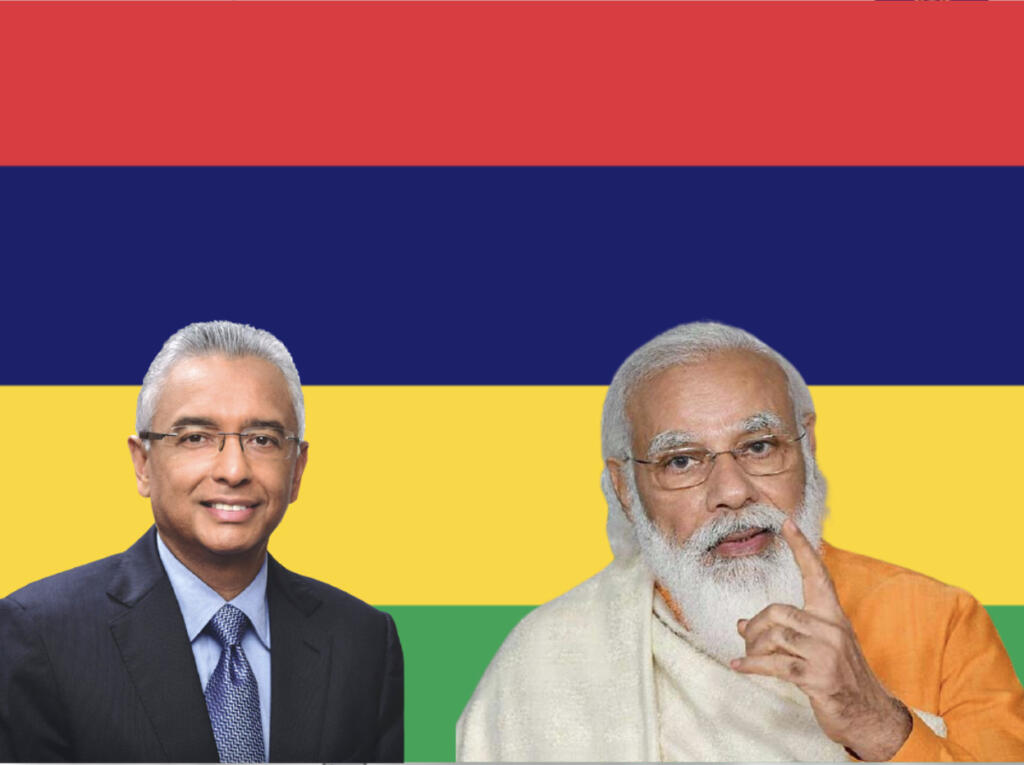In its October plenary, the global financial watchdog, the Financial Action Task Force (FATF) announced that the African nation of Mauritius was being taken out of the grey list. Citing that Mauritius had strengthened the effectiveness of its anti-money laundering, terror financing process and addressed related technical deficiencies to meet the commitments, FATF announced the de-listing. The move is expected to directly benefit the investments pouring into India.
After the USA, Mauritius was the second biggest destination from where massive swathes of Foreign Portfolio Investments (FPIs) and Foreign Direct Investment (FDI) came to India, as of January 2020. Moreover, the de-listing is positive news for the island country whose economy depends on its standing as a financial center.
Mauritius’s ministry of financial services and good governance stated after the announcement, “At its October 2021 plenary the FATF concluded that Mauritius would no longer be subject to increased monitoring by FATF. The FATF welcomes Mauritius’ significant progress in improving AML/CFT (anti money laundering /counter financing of terrorism regime) regime,”
The FDIs and FPI’s had decreased from Mauritius
Mauritius was added to the list in February 2020 and subsequently, the European Commission, the executive branch of the European Union, included the island nation in its revised list of high-risk countries with strategic deficiencies in their AML/CFT frameworks.
Moreover, after the FATF added Mauritius to the Grey list, the Reserve Bank of India (RBI) was forced to blacklist the tax haven and barred FDI from Mauritius into several non-banking finance companies (NBFCs).
As a result, FDI inflow from Mauritius fell from Rs 57,785 crore in 2019-20 to Rs 41,661 crore in 2020-21. Furthermore, at present, any FPI from Mauritius can only acquire voting rights of an NBFC not exceeding 20 per cent of the total shareholding.
Companies prefer Mauritius
It is pertinent to note that many offshore funds prefer Mauritius which is comparatively inexpensive and serves as a gateway for investments in African countries. Take this for an example, earlier, Capital gains accruing to foreign investments coming through Mauritius were exempt in India due to the India-Mauritius Double Taxation Avoidance Agreement (DTAA).
As a result, many foreign investors used to incorporate conduit companies in Mauritius and bring their money into India through the conduits. Between 2004 and 2014, about 39 per cent of total Foreign Direct Investment into India was from Mauritius.
However, with India abolishing the Dividend Distribution Tax (DDT) last year while making dividend payment taxable at the hand of the recipient, the companies in Mauritius are going to come at parity with the companies in India.
FPIs continue to soar in the domestic market
Bullish at the health of the economy and expecting rich future dividends, foreign investors are continuing to bet on the Indian market. Reportedly, within the first ten days of October, Foreign Portfolio Investors (FPIs) have poured in a net sum of Rs 1,997 crore in the Indian markets as the domestic market continued to remain a competitive investment destination from a long-term perspective.
For the past two months, FPIs have been net buyers, having invested Rs 26,517 crore in September and Rs 16,459 crore in August. With Mauritius being de-listed and the investments from the country expected to receive the green light soon, the FPIs are expected to increase even further.
In layman’s terms, FPI refers to investing in the financial assets of a foreign country, such as stocks or bonds available on an exchange. The FPI flows are only expected to increase as India presents higher growth opportunities, which the global investors can no longer ignore.
Read More: PM Modi’s economic policy gets a glowing recommendation as FPIs continue to increase
Mauritius and its Indian connection
Mauritius is a small island off the coast of Africa. What makes the country so interesting is that it is the only country in Africa which is a Hindu majority. 6,70,000 Hindus reside in the tiny and picturesque country. There are hundreds of Hindu Temples in Mauritius.
As a result, Mauritius and India have excellent bilateral relations and people to people ties. Under PM Pravind Jugnauth, those ties have only soared. Indians are extremely proud of the diplomacy extended to the vanilla Islands as it strengthens India’s naval position against China’s invasive and belligerent ambition in the Indian Ocean.
As reported by TFI, the project was broached during the United Progressive Alliance (UPA) government in 2005 but was unable to get underway. Nevertheless, in 2015, after PM Modi visited the island nation, he signed an agreement to develop the strategically important airbase. A new life was granted to the project in 2018 when it was handed over to India’s AFSCONS Infrastructure.
Read More: Away from the global media glare, India has built a state-of-the-art military base in Mauritius
Mauritius getting back on its feet can largely be attributed to India’s support to the country during the tumultuous times and its clout in the Paris-based watchdog.
Reportedly, when External Affairs Minister S Jaishankar visited Mauritius earlier this year in February, Prime Minister Pravind Jugnauth remained thankful to the Indian government and stated, “Based on the respect for the rule of law, in that context, we reviewed the latest developments in respect of the completion of the decolonisation of Mauritius, a matter on which India has given its unflinching support right from the beginning of our struggle.”
The whitelisting would significantly boost the investment morale of companies across the globe which prefer Mauritius as a destination to make investments in India. If the RBI can keep a strict check on the investments, and foil the notorious elements looking to use the route to launder money once again, the decision of FATF to bring Mauritius back into the game could have a huge financial upside for India.
